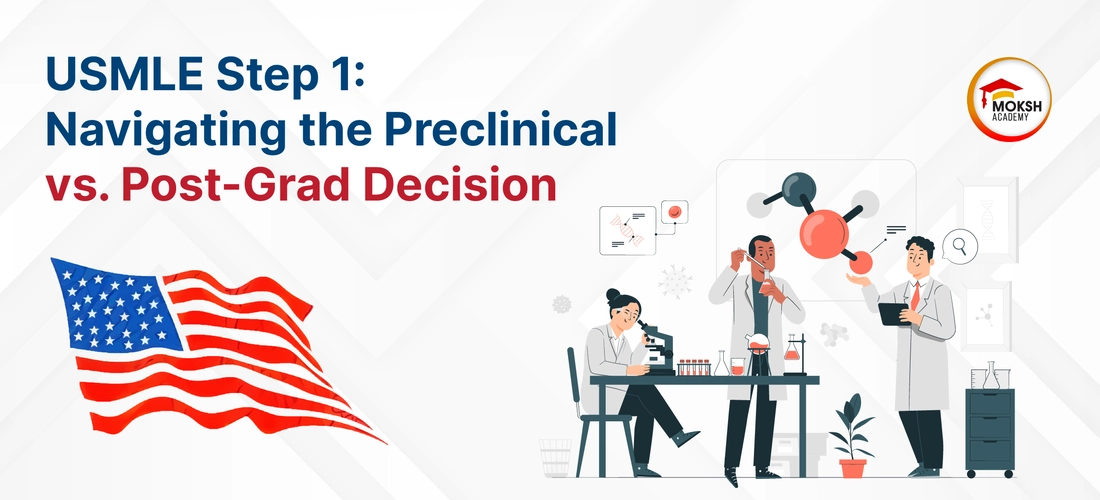
Becoming a doctor is a difficult path to take but a rewarding one. Among the most important choices a medical student must make is when to take the USMLE Step 1 exam. This standardized test assesses your foundational knowledge of the medical sciences and is crucial to your path to residency and beyond.
There are two main options: taking Step 1 during your preclinical years or after graduation, each with advantages and disadvantages. Let's dive into the pros and cons of each approach to help you make the best choice for your unique situation.
Taking Step 1 During Medical School:

Advantages:
- Fresh Knowledge: The material from your preclinical courses is still new in your mind, making it easier to recall and apply.
- Early Start: You can prepare and develop a study plan alongside your coursework.
- Residency Insights: Taking Step 1 earlier helps you understand your strengths and weaknesses, informing your residency choices.
- No Delay: You can apply for residencies immediately after graduation, potentially saving time.
- Start building your CV Early: Remember, your CV is a living document, constantly evolving alongside your medical journey. Focus on building a solid academic foundation and seek guidance from trusted professionals.
- Early momentum: Capturing successes early on, like volunteer work and academic awards, paints a picture of consistent growth and Dedication. Residency programs love that.
- Self-discovery: As you actively track your activities, you naturally gravitate towards areas of interest, guiding your future speciality choices and coursework.
- Expert guidance: Mentors and advisors can help tailor your CV to specific residencies, maximizing your chances of success.
Disadvantages:
- Time Pressure: Balancing preclinical studies and Step 1 preparation can be demanding.
- Rigid Schedule: The exam dates are fixed, requiring adjustments to your academic calendar.
- Career Uncertainty: Deciding on a specialty before taking Step 1 might be challenging.
Taking Step 1 After Medical School:
Advantages:
- Deeper Understanding: Your clinical rotations provide hands-on experience, solidifying your understanding of the material.
- More explicit Goals: You may have a better sense of your desired speciality, influencing your approach to Step 1.
- Flexible Schedule: You can choose an exam date that fits your post-graduation plans.
Disadvantages:
- Recall Challenge: Remembering preclinical material may require extra effort.
- Potential Retakes: A longer gap between courses and exams could lead to retakes.
- Delayed Residency Applications: Waiting for your Step 1 score might postpone your residency application timeline.
Ultimately, the decision of when to take Step 1 is personal. Consider your learning style, time commitments, and financial resources. Analyzing the benefits and drawbacks of each strategy, along with your circumstances, will help you make the best choice for your success.
- Preparation is Key: Dedicated studying and a well-structured plan are crucial regardless of timing.
- Seek Support: Utilize resources like question banks, online live lectures, and Moksh Academy Mentors for complete guidance on preparation.
- Trust Yourself: Choose the right path and focus on achieving your goals.
Connect With Us
Conclusion:
The decision of when to take the USMLE Step 1 exam is personal, influenced by individual learning styles, personal commitments, and financial considerations. After thoughtfully weighing the advantages and disadvantages of each strategy, students should decide which one best suits their unique set of circumstances. Preparation and Dedication Lead to Success Regardless of when you take Step 1, early preparation and a well-structured study plan are essential for success. Numerous resources are available to aid your practice, including question banks, online live lectures, and MOKSH Academy Mentors. By combining hard work, Dedication, and a strategic approach to studying, you can achieve your goal of passing Step 1 and embarking on a fulfilling career in medicine.



